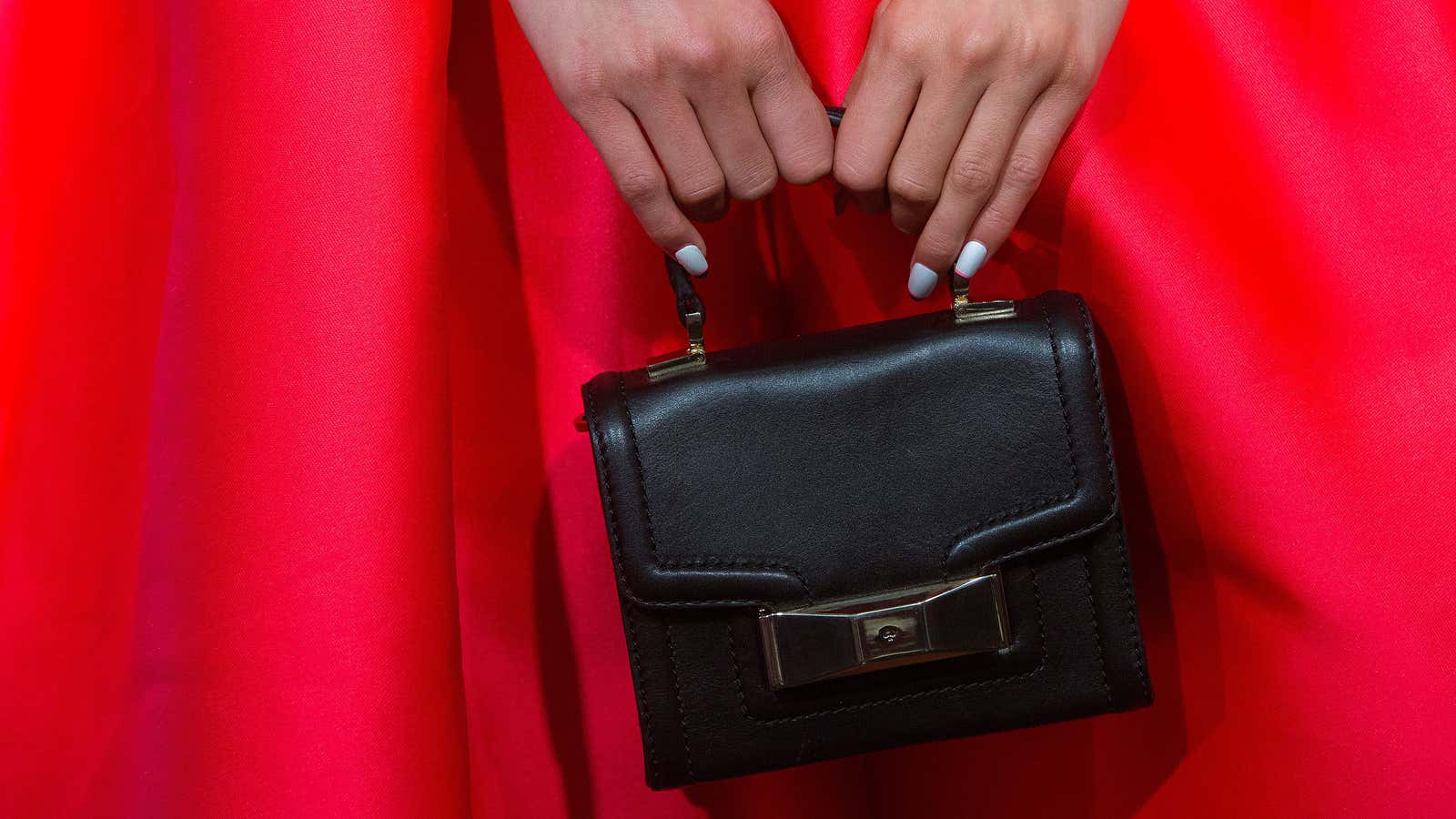Heads up, Europe: Your luxury conglomerates are getting a new American counterpart—sort of.
Handbag maker Coach announced today that it is acquiring another American handbag brand, Kate Spade. The deal, valued at $2.4 billion, adds Kate Spade to a portfolio that includes footwear label Stuart Weitzman, which Coach purchased in 2015.
Coach CEO Victor Luis proudly dubbed the company, “the first New York-based house of luxury lifestyle brands” in a statement. Ralph Lauren, which has its own constellation of lifestyle brands and owns mid-market label Club Monaco, might quibble with that—particularly as it generated $7.4 billion in 2016 sales to Coach’s $4.5 billion. Coach also isn’t in the league of Europe’s big players, Kering ($13.6 billion in 2016 sales) and LVMH ($41 billion).
Still, Coach is one of America’s largest homegrown brands, and the deal does makes it a sizable force in the realm of what’s called “affordable luxury,” products that are expensive but not prohibitively so for many shoppers. Think handbags that cost between $300 and $800, rather than well over the $1,000 of many European labels. Other “affordable luxury” labels include Michael Kors, Tory Burch, and of course, Kate Spade, which has a fan base of millennials who like its quirky, colorful identity.
The acquisition had been rumored for weeks, but issues such as Kate Spade’s poor recent performance may have delayed the transaction. Ultimately it proved too tempting for Coach to pass up. Coach has been in the market for an acquisition, having accumulated a cash pile of $1.84 billion, and has seen positive results from Stuart Weitzman since that acquisition.
Despite Kate Spade’s stumbles, Coach sees lots of potential growth, especially overseas. Coach has done well expanding outside the US, especially in countries such as China, where consumers in the growing middle class are looking for their first tastes of luxury. Kate Spade, meanwhile, has little exposure abroad, getting only about 15% of its sales internationally—which means Coach has lots of room to use its expertise to boost those sales.
“We believe Coach’s extensive experience in opening and operating specialty retail stores globally, and brand building in international markets, can unlock Kate Spade’s largely untapped global growth potential,” CEO Luis said in a statement.
Coach has also turned around its own business around after struggling with overexposure and a reliance on margin-crushing markdowns. Its hire of creative director Stuart Vevers, a deliberate pull-back from discount-addicted department stores, and focus on high-end fashion has helped it raise full-price sales, particularly of bags at higher price points.
If Coach can execute the same strategy with Kate Spade while expanding the brand outside the US, Coach could see a great return on its investment—and perhaps set itself up for another acquisition down the line in its bid to bolster its profile as a luxury fashion house.
